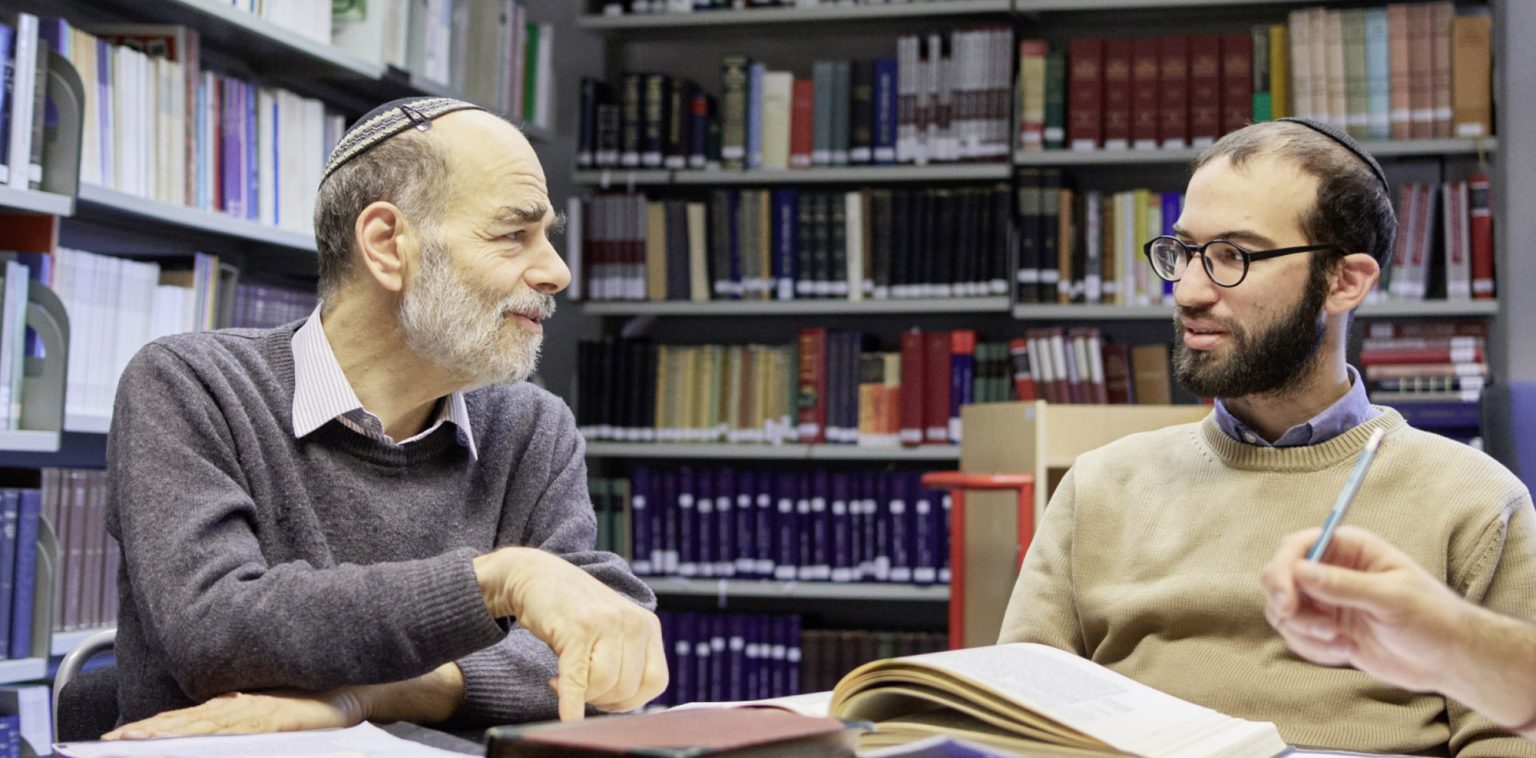Rabbi Nitzan Stein Kokin
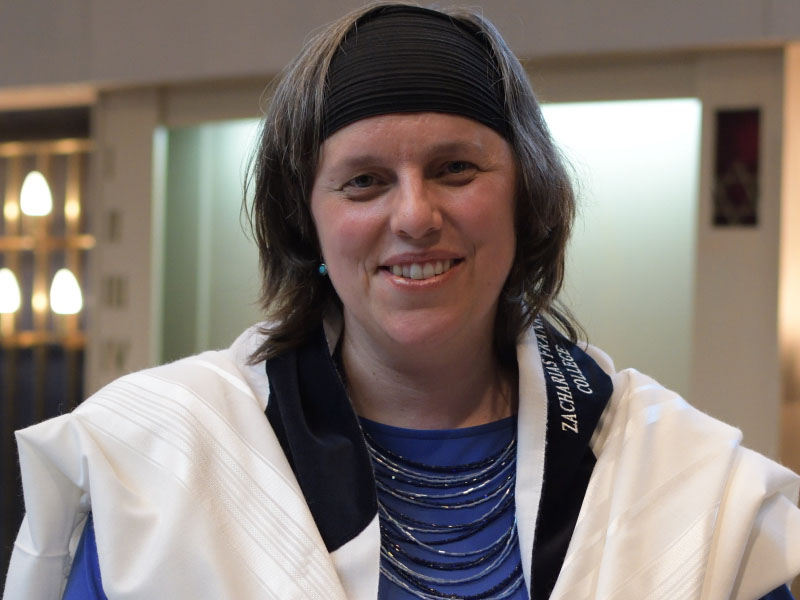
Born and raised in Southwestern Germany, Nitzan Stein Kokin decided in her early twenties to move to Jerusalem and earned a Master’s Degree in Jewish Studies from Hebrew University. After her studies in Israel she moved to the U.S. in 2002, where she studied Jewish Education at Boston’s Hebrew College. She lived in the U.S. with her husband and her two daughters until they moved to Berlin, Germany, in 2010.
For over fifteen years, she has taught Judaism and Hebrew language in formal and informal settings alike in Israel, the United States, and Germany. During this period, she also developed an interest for congregational work and leading prayer services and started to consider the possibility of serving the Jewish people as rabbi, and so when the Zacharias Frankel College opened its doors, she was quick to apply and became the first student accepted into the program.
Nitzan’s interest in Jewish Law and Gender Studies sparked her research on the halakhic thought of the first-ever woman Rabbi, Regina Jonas (ordained in Germany, in 1935), the subject of her rabbinic thesis. To be the first graduate of the Zacharias Frankel College fills her with gratification and pride. Thus, she strives to build bridges between the tradition and philosophy of Zacharias Frankel and the conservative movement in the United States.
Rabbi Nitzan Stein Kokin is the rabbi of Beth El Congregation in Phoenix, Arizona.
Rabbi Joshua Weiner
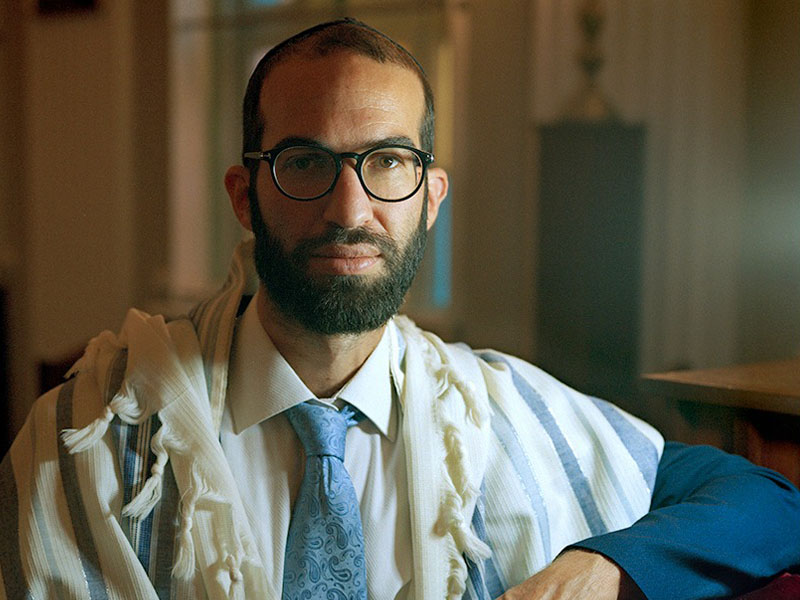
Josh Weiner (35) is a rabbi, social worker, tour guide and Jewish educator. He grew up between London and Jerusalem, and eventually moved to Berlin with his wife, Noémi, and son Amitaï. After working at the Masorti kindergarten, he discovered and enrolled at the Zacharias Frankel College, and completed his academic degrees at Potsdam University and yeshiva studies in Jerusalem. He speaks English, Hebrew, German and French.
Josh works on a number of educational initiatives in Berlin alongside his studies. He helps coordinate educational activities at the Fraenkelufer Synagogue in Berlin, visits schools and mosques as part of the Meet2Respect initiative, does one-on-one teaching and guidance with young Jews in the city, teaching at the Kreuzberg Kollel and at the home-based empowerment project “Berlin Tisch”, among others.
Josh is passionate about text study, and finding a way to translate the ancient wisdom into a language that is relevant for complex twenty-first century Jews. He also enjoys cooking and hosting meals, and learning from a large variety of teachers on a range of topics. His MA thesis was entitled “A Phenomenology of ‘Kavannah’ in Maimonides’ Laws of Prayer”.
Rabbi Netanel Olhoeft
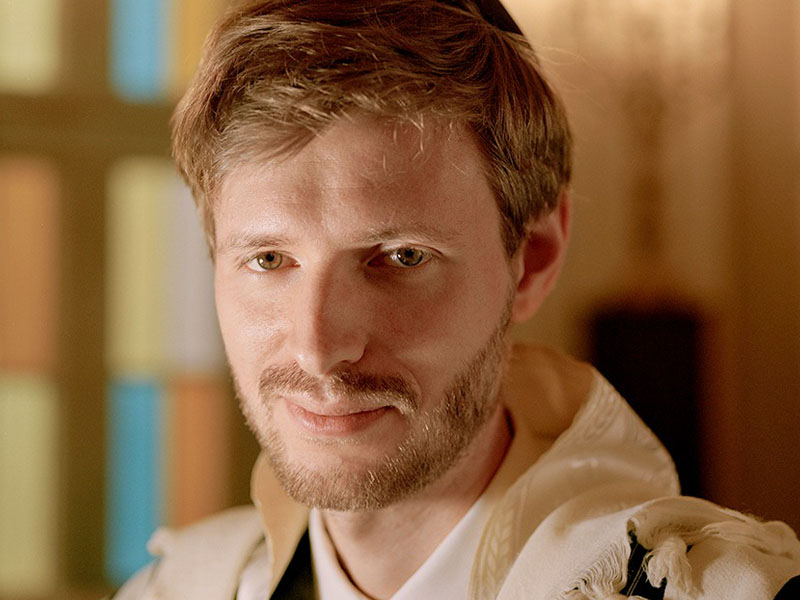
Netanel Olhoeft (26) is continuing on in his studies for a Ph.D. and planning a doctoral dissertation on a halakhic topic at the University of Potsdam. He is also working as a research assistant and lecturer at the School of Jewish Theology at the University of Potsdam, and as a journalist and translator for Hebrew and German. Born in Berlin, Netanel found his way to the Zacharias Frankel College after studying Talmud at a yeshiva in Bnei Brak, Israel, and philosophy at Berlin’s Humboldt University. His MA thesis in Jewish Theology was entitled “Brit Damessek and Chazal – Similarities and Differences between Qumranic and Rabbinic Scriptural Interpretations”.
Netanel sees Judaism as going through a process of creative change in our time. The ever-lasting contradictions between tradition and modernity, between Halakhah and individuality, and between revelation and epistemological progress make it difficult for many Jews to discover a modern, intense and profound form of Judaism for themselves. Through his involvement in the German Jewish community as a tutor for Hebrew and Aramaic as well as for Biblical and Talmudic literature, Netanel wants to help all people he meets to re-encounter the beauty of the Torah and to be able to integrate it in their lives in an individualized way.
Rabbi Ann Gaëlle Attias
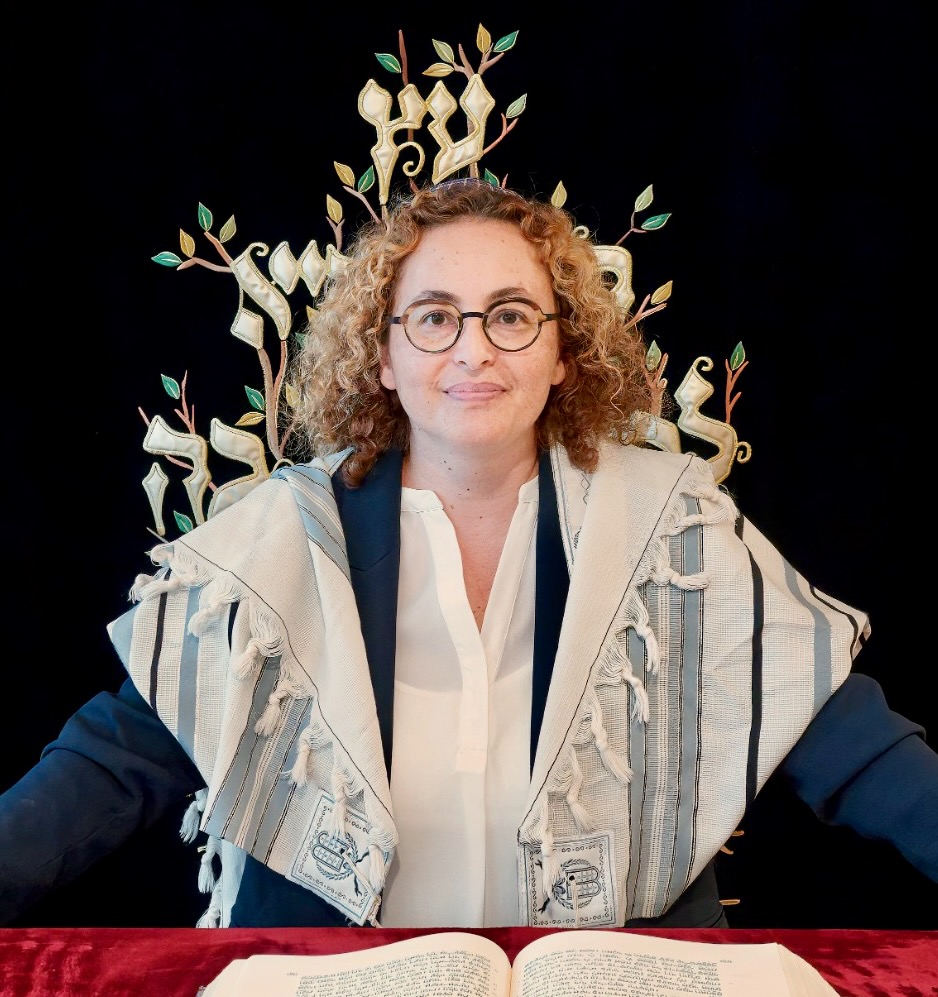
Ann Gaëlle Attias, grows up in France near Paris in a Jewish family originally from Morocco. She is interested in religious education, but is very frustrated by the place she is assigned as a girl: She cannot actively participate in services, study Mishnah or Gemara. Then she meets the first female rabbi in France, Pauline Bebe, and with her, egalitarian Judaism. Finally, she finds her place in the synagogue.
At the age of 20, she starts working as a journalist for the print media. In 1996, she becomes a television reporter. For ten years she follows criminal cases. After these emotionally exhausting years, Ann Gaëlle decides to turn to political journalism and becomes a reporter for politics, where she specializes in far-right parties.
After more than 20 years in the media world, she begins to study religious studies in evening classes at the EPHE (Paris). Her final thesis, which combines halakhic and sociological research, is on “The Appropriation of Tallit, Tefillin and Kippa by Liberal Women in France.”
In 2016, she left television for good to begin rabbinical studies in Paris under the guidance of Rabbi Pauline Bebe and Rabbi Tom Cohen, and then in London at Leo Baeck College. As the halakhic approach to Judaism becomes increasingly important to her, she transfers to Zacharias Frankel College in 2020. Her senior thesis offers a halakhic analysis of conversion procedures conducted in France and Morocco in the second half of the 19th century.
Ann Gaëlle has been a rabbinic intern at AJLT-JEM Toulouse since 2018 under the supervision of Rabbi Stephen Berkowitz. She has been rabbi of this congregation since November 2022.
Rabbi Andrés Bruckner
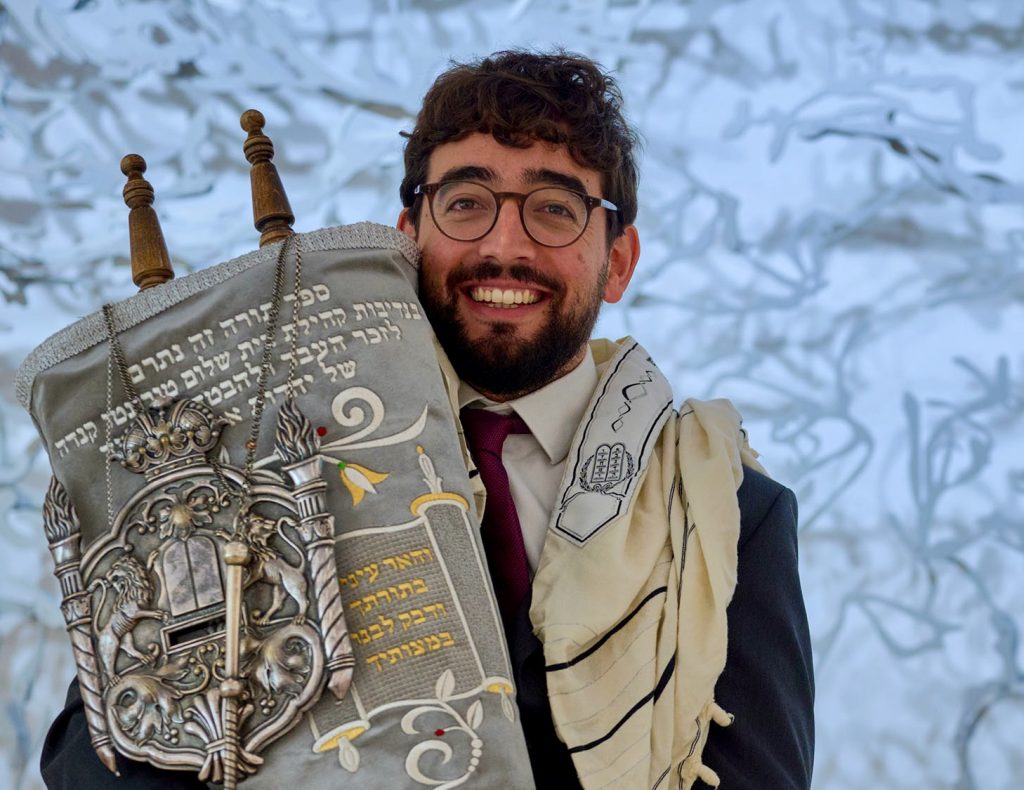
Andrés Bruckner, born and raised in Bogotá, Columbia, knew he wanted to become a rabbi at the age of 16. His inspiration came from his confrontation with the Talmud, with its 63 tractates and 27,11 double pages containing more than 1,8 million words of wisdom! He wanted to become a rabbi, not only to master this amazing wisdom, but also to make it accessible and remind other Jews that they are the keeper of an incredible and beautiful tradition.
First, however, he decided to study finance and worked as a trader at the stock exchange. To sustain his passion for Jewish study and community engagement, Andrés became involved in the German-speaking Jewish community of Bogotá, leading services and working in the youth movement.
Recognizing that he could not pursue rabbinic studies in Columbia, it was clear that he could only realize his dream abroad. At the age of 24, he learned that a Masorti rabbinical seminary had been founded in Germany. Since part of Andrés family is from Austria and Alsace, Andrés always wanted to learn the language his grandparents spoke, and in 2016, he submitted his application to Zacharias Frankel College. Six years later, Andrés completed his rabbinic education with a master theses on the halachic development of the prohibition “According to their (specific) statues you shall not go” ובחקתיהם לא תלכו which deals with the ever-present topic of Jewish uniqueness.
After his ordination, Andrés became the rabbi of the Jewish community in Bochum, which he has served an an intern since Purim 2021.
Rabbi Irene Muzas Calpe
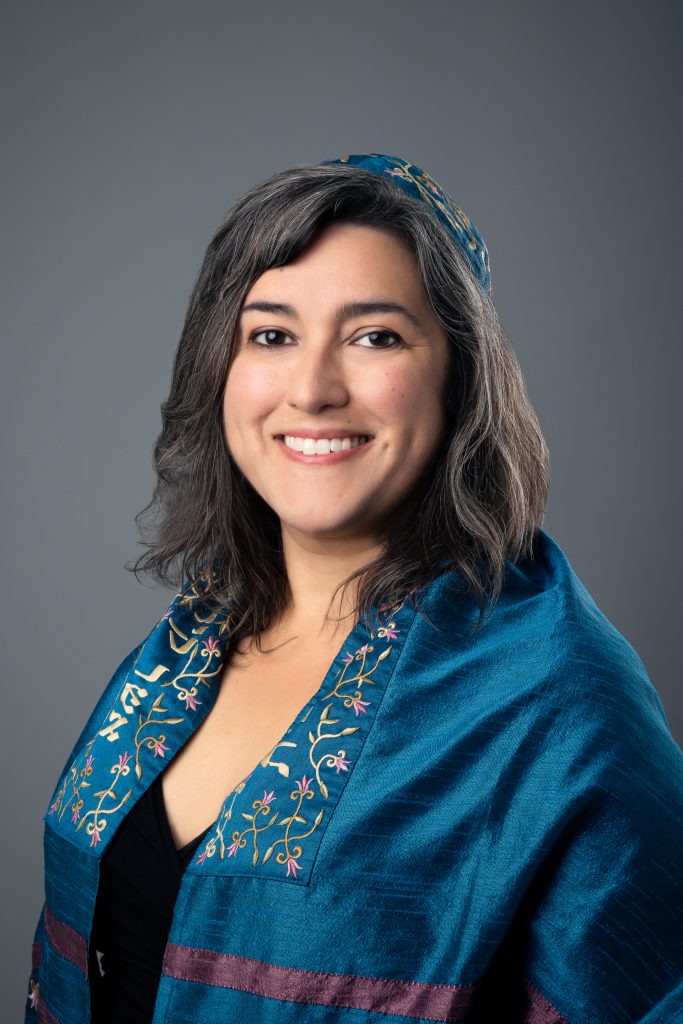
Born and raised in Barcelona, Irene Muzas Calpe studied English Philology (1997) at Universitat Autonomy de Barcelona where she also completed her Postgraduate studies in English Literature (2004). She has also pursued studies on Classics at the Universitat de Barcelona and on Eastern Asian History and Culture at the Universitat Oberta de Catalunya. As part of her Rabbinical Studies, she has completed a BA and MA in Jüdische Theologie at Universität Potsdam and has spent a year-course at the Conservative Yeshiva in Jerusalem.
Before deciding to become a rabbi, she worked in the publishing sector as an international rights manager, editor and publisher. Years later she decided to go back to teaching and trained and worked as a teacher of Latin and English in Secondary School. Her growing commitment with the Jewish community in Barcelona and her love for Torah and teaching encouraged her to begin rabbinical studies.
Her main interest are popular Jewish culture throughout the ages, from ancient midrashim to superhero comic books, and Jewish Gender Studies, on which she wants to pursue her PhD. As a rabbi she aims to help to (re)build the Jewish community in Spain and Europe, and to build bridges between the different sectors of society with Judaism. She is the first female Rabi in Spain and leads the Masorti community in Barcelona, ATID.
